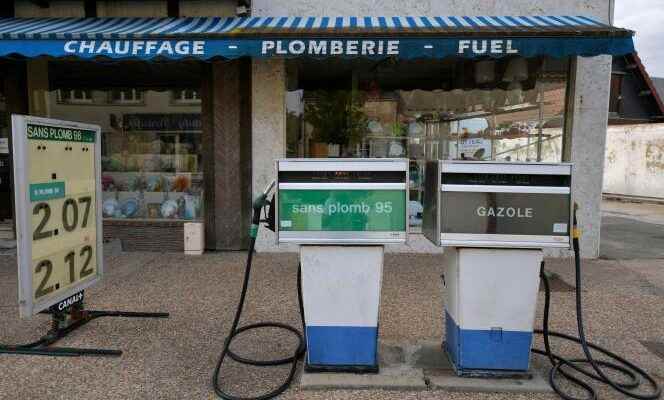For France, the depreciation of the euro against the dollar has an immediate, painful and stumbling consequence: it fuels inflation, in particular through the energy bill. Inflated by the rise in oil or gas prices, but also by changes in exchange rates, the cost of purchasing energy in the country fell from 27 billion euros, in the second half of 2021, to 48 billion, in the first half of 2022, according to foreign trade figures.
“In August, the price of Brent denominated in euros was 61% higher than August 2021recalls Stéphane Colliac, economist for France at BNP Paribas. In dollars, it was only 39% higher. It makes a noticeable difference. If we eliminated the effect of the exchange rate on the energy bill, we would have 0.4 point of inflation less in August. »
This direct impact of a weak euro is combined with another, indirect effect. The rise in the energy bill and various imported inputs, for example seeds or fertilizers used in the food industry, inflate companies’ production costs. “This indirect effect is around half of the direct effect, i.e. 0.2 inflation point”, believes Mr. Colliac. In total, according to him, the increase in the price of oil in euros linked to the euro-dollar exchange rate contributes 0.6 points to inflation in France.
The mechanism the opposite occurred in 2008, when it was the euro which gained in value against the greenback. “The price of oil had then risen a lot, but since the euro was stronger against the dollar, this had mitigated the rise in the billrecalls Mr. Colliac. This helped us a lot to limit inflation in 2008.”
Deterioration of the trade balance
The weakness of the euro also contributes to the deterioration of the country’s trade balance, insofar as many imported products – including, therefore, energy products – are paid for in dollars. Still according to the calculations of the BNP Paribas economist, the deterioration in the exchange rate widened the trade deficit in the first half of 2022 by 6 to 7 billion euros, out of a total of around 71 billion.
On the other hand, products made in France and denominated in euros appear, it is true, more competitive on world markets than products sold in dollars. But this “competitiveness effect”, linked to the fall of the euro, is not massive. First, because more than half of French exports are destined for a country in the European Union, which eliminates the advantage linked to exchange rates. Second, to the extent that the economic slowdown is accompanied by a “contraction of trade flows within the developed countries, the fall in the euro will not fully benefit the countries of the euro zone”dreads Philippe Waechter, economist at Ostrum Asset Management.
You have 39.17% of this article left to read. The following is for subscribers only.
